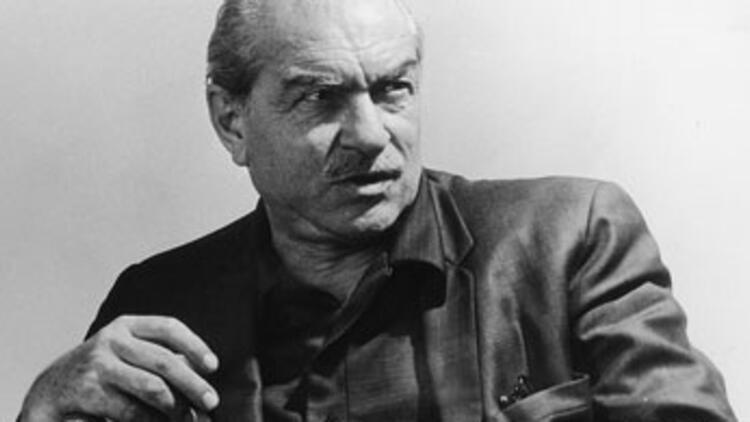
Turkish author Kemal Tahir's 47th death anniversary is being commemorated on April 21.
His most famous works are Devlet Ana (Mother State) that defines the ideal state by attributing to Turkish history and Yorgun Savaşçı (Tired Warrior) that tells the story of a Turkish soldier who fought for independence and liberation of Turkey.
Tahir, whose real name is Ismail Kemalettin Demir, was born in Istanbul in 1910.
After the death of his mother, he had to discontinue studies at the Galatasaray High School and start working.
Between 1928 and 1932, he worked as a lawyer's assistant and also served as a warehouse officer in a coal mine in the northern Zonguldak province.
In 1932, Tahir started journalism that would shape this future.
Some most famous and leading authors of the period, such as Yakup Sabri, Ertuğrul Çevket, İsmail Safa and Arif Nihat Asya were his mentors.
He published an art magazine Geçit, which was discontinued after seven issues.
Meanwhile, between 1932 and 1938, he worked as a proofreader, interviewer, and translator in Vakit, Haber, and Son Posta newspapers.
He also worked as a secretary at Yedi Gün and Çizgi magazines, lead writer at daily Karagöz and editor-in-chief for daily Tan.
In 1938, Tahir was tried on charges of "inciting military rebellion" along with Nazım Hikmet, who was one of the most famous Turkish poets and novelists.
After 12 years in prison, Tahir was released based on the general amnesty scheme in 1950.
In prison, he wrote his novels Zoraki Nisanli, Bir Nedim Divanının Esrarı, Camı Kıran Çocuk, Halk Plajı, Gönül Denilen Hayvan and Aşk Pınarı.
The author, who did not use his pen name Kemal Tahir in his works until 1954, was the Istanbul editor of the Izmir Tijaret newspaper for some time.
After working in various newspapers and publishing houses, he founded the Düşün publishing house along with Aziz Nesin in 1957.
The author shifted his entire focus on novels in 1960.
The celebrated novelist focused on topics such as the Ottoman period, the constitutional monarchy and republican period, one-party regime, village institutes, and the Asian-style production.
His novel "Mother State" made a great impact both in the literature and on the agenda in 1967.
He received the 1967-1968 Yunus Nadi Novel Award, one of the most prestigious cultural and arts awards of the period in Turkey, for his novel Tired Warrior.
In 1968, he also received the Turkish Language Association's Novel Award for his novel Mother State.
Tahir died at the age of 63 on April 21, 1973, due to a heart attack.
Some of his works
Sağırdere (1955), Esir Şehrin İnsanları (1956), Korduman (1957), Rahmet Yolları Kesti (1957), Yedi Çınar Yaylası (1958), Koyun Kamburu (1959), Esir Şehrin Mahpusu (1961), Bozkırdaki Çekirdek(1962), Kelleci Memet (1962), Yorgun Savaşçı (1965), Devlet Ana (1967), Kurt Kanunu (1969), Büyük Mal (1970), Yol Ayrımı(1971), Namuscular (1974), Karılar Koğuşu (1974), Hür Şehrin İnsanları(1976), Damağacı (1977), Bir Mülkiyet Kalesi I-II (1977).
His works adapted to the cinema
Yarın Bizimdir (1963), Haremde Dört Kadın (1965) and Namusum İçin (1966).